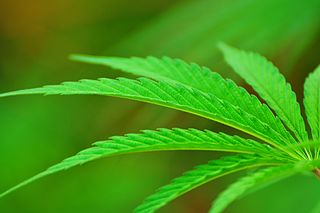Related Research Articles

Cabo Verde Airlines is an international airline based in Cape Verde. It connects four continents and cultures, with non-stop flights from the hub at Amílcar Cabral International Airport on Sal Island, Cabo Verde to Boston and Washington DC, Dakar and Lagos, 4 locations in Brazil and 4 in Europe, with more destinations on the horizon.

Espargos is the capital and main commercial centre of the island and municipality of Sal, Cape Verde. The city is situated in the heart of the island.

This is a list of the annual prevalence of cannabis use by country as a percentage of the population aged 15–64. The indicator is an "annual prevalence" rate which is the percentage of the youth and adult population who have consumed cannabis at least once in the past survey year.

Cannabis in the United Kingdom is illegal for recreational use and is classified as a Class B drug. In 2004, cannabis was made a Class C drug with less severe penalties but it was moved back to Class B in 2009. Medical use of cannabis when prescribed by a registered specialist doctor was legalised in November 2018.

Crime in Panama is investigated by the Panamanian police.
Drug addiction is defined as compulsive and out-of-control drug use, despite negative consequences. In the last few decades, drug addiction has increased exponentially in Pakistan. Most of the illegal drugs come from the neighbouring Afghanistan. According to the UN estimate, 8.9 million people in the country are drug users. Cannabis is the most used drug. The rate of injection drug abuse has also increased significantly in Pakistan, sparking fears of an HIV epidemic.
Cannabis in Nigeria is illegal, yet the country is a major source of West African-grown cannabis, and ranked the world's eighth highest consumer of cannabis. Cannabis is widely grown across the States of Nigeria, including Ondo State, Edo State, Delta State, Osun State, Oyo State and Ogun State.
Cannabis in Guyana is illegal for all uses, but is both grown and consumed in the nation. Possession of 15 grams or over can result in charges of drug trafficking.

Cannabis in Brazil is illegal and criminalized, but possession and cultivation of personal amounts and for private use were de-penalized in 2006. Use of cannabis medications is allowed for terminally ill patients or those who have exhausted other treatment options.
Cannabis in Hong Kong is illegal. The possession, sale, transportation, and cultivation of cannabis is prohibited under the Dangerous Drug Ordinance, which was put into effect in 1969.

Cannabis in Pakistan is illegal, although in many parts of the country enforcement is lax. Cannabis is widely consumed in Pakistan as charas and bhang.
The use and possession of cannabis is illegal in Saudi Arabia. Use and possession for personal use of any kind of recreational drugs is often punishable by imprisonment if caught. For Saudi citizens, there would generally be more leniency. Imprisonment for personal use of cannabis could go up to 1 to 6 months in prison with or without whippings for first time offenders. Imprisonment for drug dealing can range between 2 and 10 years in prison with whippings. Repeated dealing and or smuggling of high amounts of drugs usually result in harsher time in prison or even the death penalty, although recent executions are rare. Foreigners who use cannabis might be deported.
Cannabis in Benin is illegal. The country is not a major drug producer or consumer, but increasingly serves as a transshipment point for drugs produced elsewhere. Cannabis is the only drug produced locally in Benin, though mostly on a small scale.
Cannabis in Grenada is illegal. Cannabis possession is the most common drug offense on the island, and the annual prevalence of cannabis use amongst adults was reported as 10.8% in 2005.
Cannabis in New Caledonia is illegal, but is cultivated illicitly. Sources note that "hard drugs" are rare in New Caledonia, and their drug issues are primarily confined to cannabis, with local Kanak chiefs being anti-drug and working to eradicate cannabis plantations.
Cannabis in São Tomé and Principe is illegal, but is trafficked illicitly. In the 1890s, Portuguese Angolans sold "notable quantities" to Angolan laborers in São Tomé, despite cannabis growing prolifically in the vicinity of the laborers' quarters.
Cannabis in Barbados is illegal for recreational use, but the drug is in high demand on the island. Cannabis is sourced from St. Vincent and Jamaica by local dealers who pool resources to buy consignments of the drug, transported by go-fast boats.
Cannabis in Burkina Faso is illegal.

Cape Verde–Spain relations are the bilateral and diplomatic relations between these two countries. Cape Verde has an embassy in Madrid, a consulate general in Las Palmas de Gran Canaria and two consulates in Alicante and La Coruña. Spain has an embassy in Praia.
Cannabis in Haiti is illegal with severe punishments for the production, sale, and possession of marijuana for medicinal or recreational purposes.
References
- ↑ William R. Brownfield (1 May 2011). International Narcotics Control Strategy Report: Volume I: Drug and Chemical Control. DIANE Publishing. pp. 187–. ISBN 978-1-4379-8272-5.
| This Cannabis-related article is a stub. You can help Wikipedia by expanding it. |
| This Cape Verde-related article is a stub. You can help Wikipedia by expanding it. |